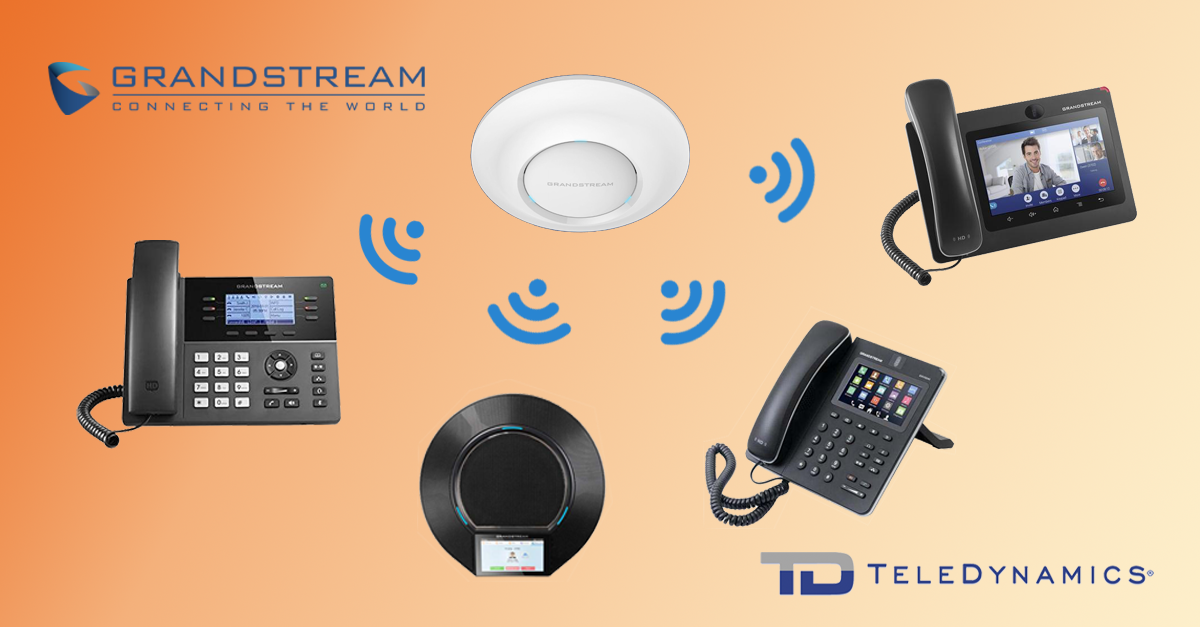Wireless Internet Service Providers (WISPs) have traditionally relied on the use of Wi-Fi technologies that leverage unlicensed frequency ranges of 2.4 and 5 GHz, along with all of the legal limitations that come with them. Recently, however, additional connectivity options have been made available and much more affordable to WISPs. Among those options is the use of Long Term Evolution (LTE) solutions. In this article, we examine how WISPs can use LTE for their networks, which was a topic of particular interest at WISPAMERICA this year.
TeleDynamics Think Tank
Topics: Wireless, Trends, Wi-Fi, Regulations, WAN Technology, WISP
Yealink UC Workstation and DECT wireless headset
Product Review
Over the years, Yealink has repeatedly redefined business communications and collaboration, introducing new and innovative solutions. Yealink has done this once again with the introduction of the UC Workstation, a truly revolutionary step in improving workspace and employee productivity.
Here we examine some of the most intriguing features of this new product that will help to get your business to the next level of productivity.
Topics: Wireless, VoIP, Total Voice Solution, Yealink, Cordless, DECT, Headsets, Productivity, Product Review, Unified Communications
Break free from cords with the Snom C620 conference phone
Dealing with pesky cords is a common frustration of conference phones. If you want to place the phone in the middle of a conference room, you either need an electrical outlet located in the middle of the floor, or you need to bring in an extension cord. And then you need to be careful not to trip over it!
That’s why we love the Snom C620 conference phone. It uses DECT 6.0 technology for a completely wireless conferencing experience. Even the detachable microphones are cordless, allowing for more effective collaboration without the frustration factor. In this article, we take a look at this robust and flexible conferencing device.
Topics: Wireless, SIP, Cordless, DECT, Conferencing, Product Review, Snom
Many administrators resist implementing VoIP over Wi-Fi, often citing security and quality concerns. The truth is that if implemented correctly, voice can be safely and reliably deployed on a wireless network. This article examines some best practices for optimizing voice over Wi-Fi (VoWi-Fi).
Topics: VoWi-Fi, QoS, Wireless, Network Security, Network Design, Wi-Fi, Unified Communications
Knowledge is power! That’s why at TeleDynamics, not only do we offer exceptional products and white-glove customer service, but we also share principles pertaining to telecommunications technology with you to help equip you to offer the highest-quality service possible to your customers. In this article we explain the fundamentals of Wi-Fi, so you can have an in-depth understanding of the different deployment scenarios and options.
Topics: Wireless, Network Design, Wi-Fi, IoT, Regulations
Two years after Yealink launched its T5 series of smart media phones, Yealink has updated this series to deliver even more productivity-focused features that will aid all levels of middle to upper management and high call-volume users. We take a look at the new models in this article.
Topics: SIP Phones, Wireless, SIP, Yealink, DECT, Productivity, Product Review, Unified Communications
Product Review
If you want to get your wireless network up and running quickly, and for a reasonable price, the TP-Link Omada solution is ideal. It provides both easy-to-install procedures and reliable, high-quality components for networks with anywhere from two to two hundred or more access points.
Topics: Wireless, Mobility (including remote work), Product Review, Cloud, Wi-Fi, TP-Link
Grandstream’s GWN7000 series Wi-Fi access points and Gigabit router
Product Review
Since launching its GWN7610 Wi-Fi access point in 2016, Grandstream has grown its GWN Series to include a range of access points plus a Gigabit VPN router to offer a complete wired and Wi-Fi solution. In addition to the GWN7610 enterprise access point (“AP”) we reviewed in 2016, Grandstream has since launched the GWN7600 mid-range AP, the GWN7600LR outdoor long-range Wi-Fi AP, and the FWN7000 enterprise multi-WAN Gigabit VPN router. We take a look at the full series in this article.
Topics: Wireless, Grandstream, Mobility (including remote work), Routers, Product Review, Wi-Fi
What's new in Yealink’s W53P IP DECT phone and WF50 Wi-Fi Dongle
Product Review
Last week, Yealink launched the W53P DECT IP phone package and the WF50 Wi-Fi dongle for IP phones. These products further enrich Yealink’s suite of wireless enterprise solutions. We take a look at both of these products in this article.
Topics: Wireless, Yealink, Mobility (including remote work), Cordless, DECT, Product Review
By Phil Bowers, Senior Marketing Manager, Grandstream
A new trend is beginning to develop within the business communications industry. Being driven largely by enterprises looking to streamline internal networks by eliminating wiring, voice over Wi-Fi (VoWi-Fi) could be the next major advancement within the VoIP industry. It features the same exact backend hosted, cloud, or SIP trunk services as any wired voice-over-IP (VoIP) network, but with the connections being extended to endpoints through an immersive Wi-Fi network rather than an endless maze of Ethernet cabling.
Here at Grandstream, we are leading the Wi-Fi voice trend through a variety of initiatives and solutions designed to allow businesses to build powerful VoWi-Fi networks that increase productivity, streamline installation and management, and offer eco-friendly benefits. This article will introduce the Wi-Fi voice trend, cover the reasons many businesses are adopting Wi-Fi voice networks, combat a major Wi-Fi voice concern, and highlight the Wi-Fi voice solutions we offer at Grandstream.
Topics: VoWi-Fi, Wireless, VoIP, Total Voice Solution, Grandstream, Wi-Fi
Welcome to our Think Tank
In this blog you'll read our thoughts on business telephone systems. While a lot has changed in telecom since TeleDynamics was founded in 1981, we remain as committed as ever to delivering the best customer service in the industry.
If you would like elaboration on a specific topic, please let us know in the comments section.
Happy reading and thanks for stopping by!
Receive New Articles by Email

Recent Posts
- Why resellers love Yeastar Cloud PBX (and why you will, too)
- How to fix cloud UC call quality with QoS, SBCs, and SD-WAN
- Building secure, scalable networks with Grandstream GWN7800 Pro
- Inside Yealink’s T8 series: a smarter generation of desk phones
- Why BGP multihoming matters for always-on UC and VoIP
Posts by Topic
- 5G
- AI
- Android
- Avaya
- Bluetooth
- Boom Collaboration
- Business Continuity
- Business Strategy
- Business Telephone System
- Case Study
- Catalog
- Cisco
- Cloud
- Collaboration
- Communication
- Conferencing
- Cordless
- CPaaS
- Customer Service
- Customer Success Story
- CyberData
- DECT
- E911
- Events
- Facility Management
- Firewall
- Firmware Upgrades
- FoIP
- Gateway
- Grandstream
- Headsets
- Home Security
- IoT
- IP PBX
- Jabra
- Konftel
- Leasing
- Microsoft
- Mobile
- Mobility (including remote work)
- NEC
- Network Design
- Network Infrastructure
- Network Security
- News
- OTT VOIP
- Outsourcing
- Panasonic
- Peripherals
- PoE
- Polycom
- Power Management
- Product Review
- Productivity
- Protocols & codecs
- QoS
- Regulations
- Routers
- SD-WAN
- SIP
- SIP Phones
- Snom
- Software Integration
- Surveillance
- Switches
- Total Voice Solution
- TP-Link
- Trends
- Troubleshooting
- UCaaS
- Unified Communications
- Videoconferencing
- VLAN
- Voicemail
- VoIP
- VoWi-Fi
- VTech
- WAN Technology
- Wi-Fi
- Wireless
- WISP
- Yealink
- Yeastar
- Zoom
















